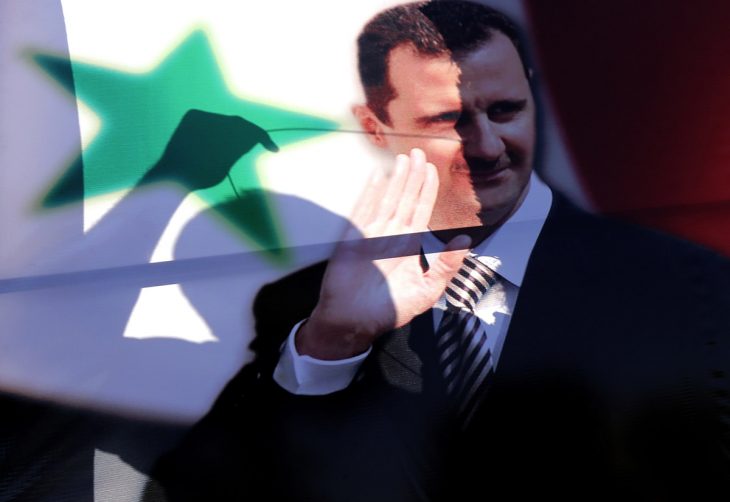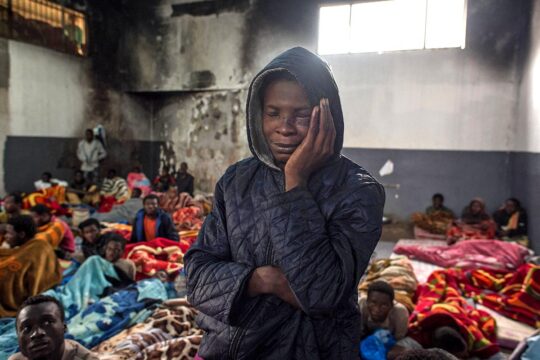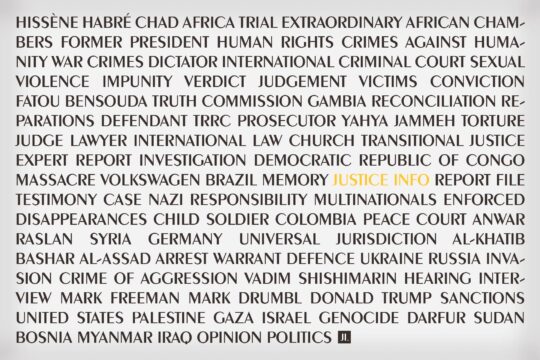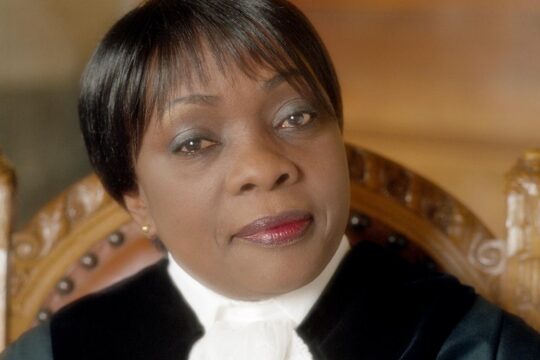‘The Assad regime has committed horrific crimes time after time. The evidence is overwhelming. There must be consequences,’ said minister of Foreign Affairs Stef Blok. He announced Friday September 18 that The Hague had given Syria notice that it was holding it responsible under international law for torture, invoking the United Nations torture convention. Such a diplomatic note is the first step toward eventually filing an official claim against Syria at the International Court of Justice (ICJ), U.N.’s highest court seated in the grand neo-renaissance style Peace Palace in The Hague.
This is a bold move from the Netherlands which – although host to courts such as the ICJ, the International Criminal Court (ICC), giving The Hague in particular, a worldwide notoriety as the international law capital – has always seemed more of a backroom operator, relying on multilateral fora and initiatives to lobby for adherence to the rule of law, as laid out in the Dutch constitution. It raises the question of how the Dutch have become the latest activist state, following a road recently opened by Gambia when it attacked Myanmar before the ICJ under the Genocide Convention over the crackdown on the Rohingya Muslim minority.
The UN routes
When the Netherlands lobbied for a seat at the United Nations Security Council (UNSC) five years ago, the central plank of their (partially) successful multi-million Euro campaign was justice and accountability. Seven years into the Syria conflict, during his first speech as the chair of the UNSC in 2018 minister Blok showed a portrait of Noor, a seven-year-old Syrian girl living in a Jordanian refugee camp and urged the council that perpetrators of international crimes must be held accountable. On Friday, the minister told Dutch television the picture of Noor was still in his office. “It confronts you daily with a war that is in danger of being forgotten,” he explained.
As a UN Security Council member, the Netherlands supported the diplomatic attempt to get Syria referred to the ICC, but those efforts were met with a Russian veto. This road being blocked, the Dutch lobbied for support in the UN General Assembly to a Lichtenstein/Qatar initiative for the establishment of what was loosely called then a “bewijzenbank” (collection of evidence, in Dutch). At a meeting of experts held in The Hague in March 2017, then foreign minister Bert Koenders spoke to the gathered set of disparate activist groups busy collecting “gigabytes of evidence” via YouTube fragments of atrocities. “Achieving justice may take longer than we would like, but we must be patient. Patience, however, is not the same thing as inaction,” Koenders stressed. The result was the International, Impartial and Independent Mechanism for Syria, or IIIM, now based in Geneva. The Netherlands is the IIIM’s biggest donor.
Looking for a legal procedure to use IIIM
“We have the IIIM with testimonies and recording of tortured people. We have the evidence and we started looking for a legal procedure” where that evidence could be used, Blok said. The Netherlands will be assisted by the Guernica 37 international justice chambers, who say they have already compiled a body of evidence that demonstrates systematic torture in Syria, in breach of the UN convention against torture. "It is very, very important that Syrian civil society and victims organisations are properly represented in this process", Toby Cadman of Guernica 37 told Justice Info.
In another context, where there is a direct and clear interest, the Dutch have been single-minded about their pursuit of justice. Since the 2014 crash of Malaysia Airlines fight MH17 which was shot down over Eastern Ukraine by a missile fired from territory held by pro-Russian rebels, the Dutch have continued to press for accountability for the victims. The flight was en route from Amsterdam to Kuala Lumpur and the crash killed everyone on board, the vast majority Dutch nationals.
Last year the Netherlands gave notice that it held Russia accountable under international law for their alleged involvement in the downing of MH17. A tribunal is holding hearings in absentia of individuals investigated by a Dutch-led international investigative team. And this year, Blok announced he was taking Moscow to the European Court of Human Rights over the crash.
In that sense the move to take Syria to the ICJ “fits with a pattern of bold moves” says Benjamin Duerr, an international law and international relations expert who has worked with the Dutch ministry of Justice told Justice Info.
An “UnDutch” move?
Consensus-finding is a prized attribute in country of coalition governments. This independent move to take the lead in holding Syria accountable could therefore be seen as ‘unDutch’. But foreign minister Blok, although usually described by the Dutch press as boring and uncharismatic, fits well within the usual national stereotypes in his abruptness – as one informed source put it ‘he is not a diplomat at heart’, and his lack of fear in potentially annoying other countries.
On Dutch television Blok admitted to having limited international law experience but having a “a whole team of people looking at different legal routes”. “The only thing they ask me is ‘are you willing to take it this far’?” he said. “The question is do you want to put the Netherlands in the spotlight because Syria will be angry – we don’t mind as much - but Russia too, which is more complicated, but my role is to take responsibility,” he added.
Sources tell Justice Info that this particular zeal for accountability for Syrian President Bashar al-Assad could also come from individuals within the Dutch diplomatic corps with a strong passion on Syrian accountability and a genuine dissatisfaction that nothing is happening with the IIIM that Netherlands has invested so much in. It’s about moral high ground and individuals, our sources say, with a target that fit with Dutch foreign policy.
Get Assad behind bars
Amid debates in the European Union about future relations with the Assad regime, the Dutch have laid down a clear marker. The Netherlands and other Nordic countries want the regime out while others in central and eastern Europe have been moving towards normalization. Greece and Cyprus already re-established diplomatic relations with Damascus and Hungary, Poland and Austria are considering doing the same. “The ICJ move is a clear sign the Netherlands does not see a role for Assad,” Duerr said. “This is also a signal to other European countries.”
Blok himself did not mince words to point out his goal was to eventually get Assad in the dock. “This is a signal to Assad that countries like the Netherlands will do whatever they can to get you behind bars,” the minister said.
Spark of hope for victims
Blok said the move should also be seen as a way to provide a spark of hope for victims. “The procedures will be long, but we should not despair, one in a while we do manage to achieve accountability”, he said, pointing out that former Yugoslav strongman Slobodan Milosevic had also ended up behind bars in The Hague at the International Criminal Tribunal for the former Yugoslavia.
It will take years before any case would eventually be heard by the ICJ on its merits. For now, the Netherlands has started the process by informing Syria of its intentions and if after six months no efforts have been made in arbitration, will likely see a claim at the Peace Palace. The last time the Netherlands appeared as one of the principal states in an ICJ case was in the 1960s.






